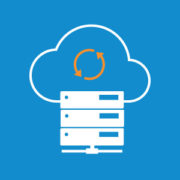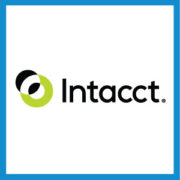Meet the Expectations of Top Financial Talent with Cloud-Based Software
The benefits of cloud-based software are usually cited as lower costs, process and workflow optimization, and scalability. But the attraction and retention of key finance and accounting department personnel is another benefit of implementing the best-in-class technology—one that’s not included in the “top 5 benefits” lists, but should be. The reality is that today’s top financial talent—and tomorrow’s leaders—operate in a digital world, where 24/7 access, insight, and productivity reign.
Let’s examine cloud computing through the talent lens to understand the importance of bringing your IT environment and software up-to-date and into the cloud.
Today’s Competitive Landscape Shapes Most Competitive Skillsets
If you want to hire top talent—that is, the best and the brightest—you’ll find yourself in an increasingly competitive environment, where job candidates hold much of the bargaining power. It’s a function of economics. According to research compiled by Robert Half, unemployment rates for many finance and accounting jobs are well below the national average: the most recent cited (Q3 2017) national unemployment rate of 4.2% is significantly higher than the averages for financial analysts (0.6%), compliance officers (1.1%), accountants and auditors (2.2%), bookkeeping, accounting and auditing clerks (2.3%), and financial managers (2.5%). What’s more, a Bullhorn survey found that 72% of recruiting professionals say they have trouble filling positions in the finance and accounting sector.
These figures reveal the potential for not only skills gaps, but for a shortage of experienced, credentialed candidates. Demonstrating a commitment to maintaining a modern IT environment—and offering leading-edge software and productivity tools to employees—is a way to help rise above the competition and position your company as an employer of choice.
Companies across industries are moving toward this distinction. In fact, a report by PwC shows that nearly a fifth of CEOs in the Financial Services industry believe that technology has completely reshaped competition in their industry over the past five years, and 28% believe it will do the same again in the next five. And according to a Robert Half survey from 2015, the most important technical skill for finance professionals to develop in the next five years is experience with financial software packages (38%), ahead of analytical skills (25%), knowledge of accounting and financial reporting standards (21%), and familiarity with regulations/risk management/compliance (16%).
Preparing for Workforce 2020
Experts predict that by 2020, digital natives will make up over half of the global workforce population. They don’t know a world without technology. Their education was tech-fueled, and so are their adult lifestyles—not to mention their early-career workplaces. They simply expect technology innovation from their employers. As finance and accounting professionals, they have knowledge and experience with the top software solutions. They’ve worked with it and don’t want to go back to boxed software systems, spreadsheets, and manual workflows—if they ever encountered them in the first place.
Considering the Boomers and Gen-Xers who make up balance of the 2020 workforce, the top leaders will share this up-to-date, tech-savvy skillset. They will want to partner with companies who prioritize technology investments and are committed to putting the infrastructure in place to support growth and innovation. Learn about The Rising Value of the Strategic CFO.
The Preferred Technology
As we point out in Overnight Success? Let Strategy Guide Your AP Automation Expectations, 46% of finance leaders believe that their IT platforms lack the ability to operate effectively and require future investment. Tomorrow’s workforce is just two years away—and companies are paving a digital road to welcome them in. For established companies, this effort includes migrating away from on-premise, legacy systems; for start-ups and early-stage SMBs, this means implementing cloud-based software solutions out-of-the-gates.
Today’s cloud-based financial management and accounting solutions deliver the features and benefits top industry professionals require—and expect—including the automation of key processes and workflows, anytime/anywhere/any device access, and integrated systems and collaboration tools. Uncover more insughts in Aligning Finance, Sales, and Customer Service at the Modern Organization.
If your financial and accounting organization wants to attract top talent and is ready for an upgrade, contact us to learn more. We specialize in connecting companies with cloud technology solutions customized for your needs—so you’re ready for whatever the future brings.











Leave a Reply
Want to join the discussion?Feel free to contribute!